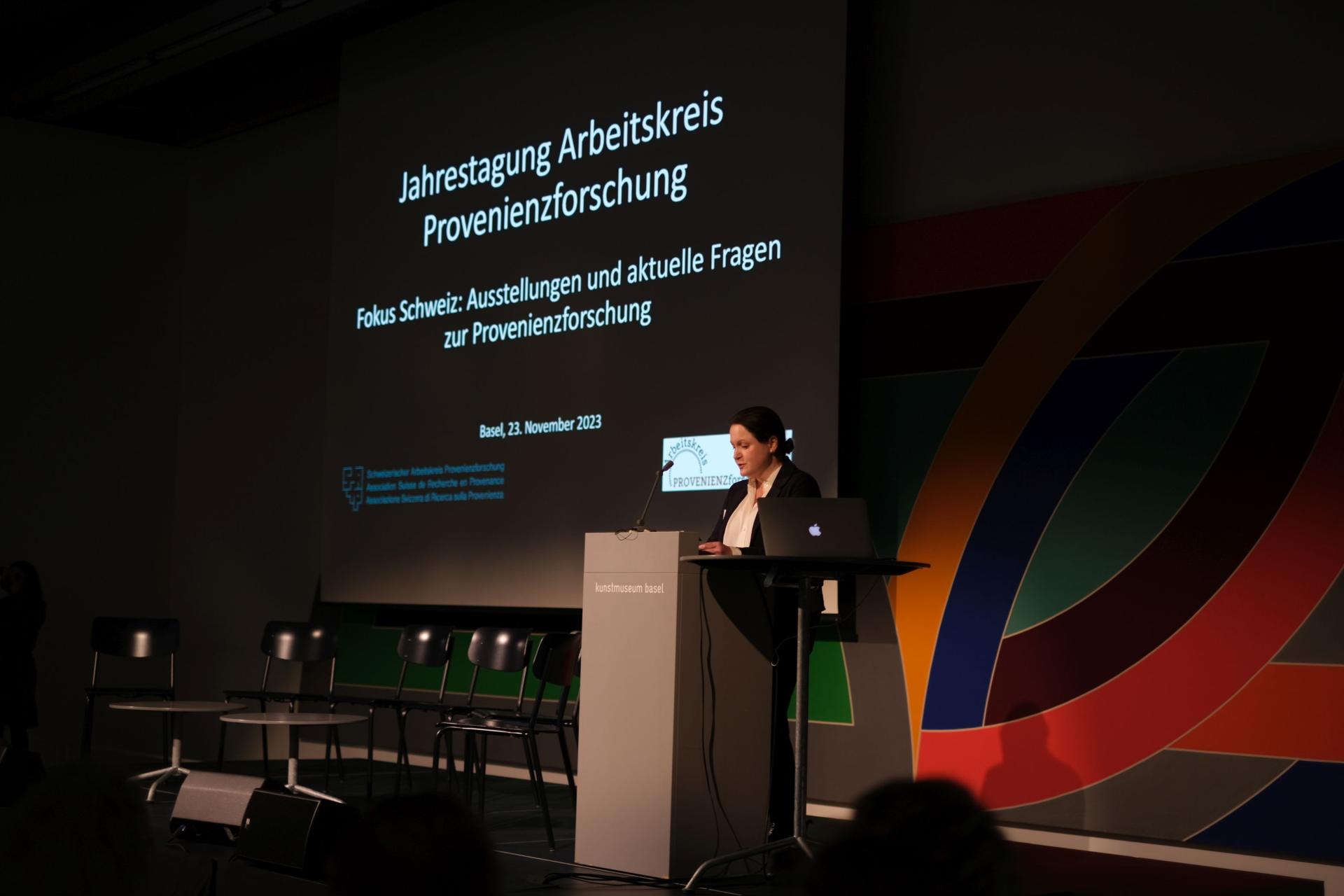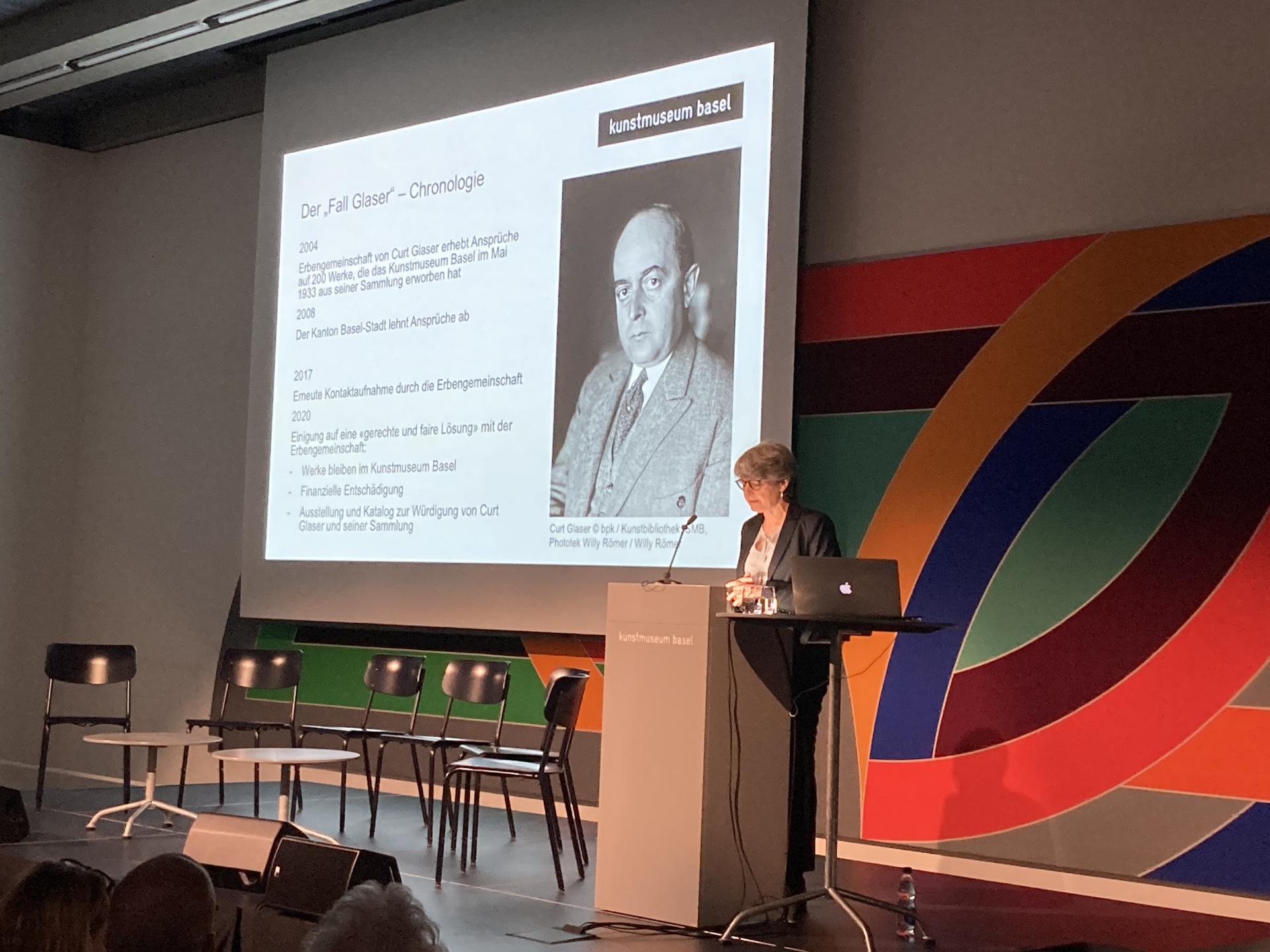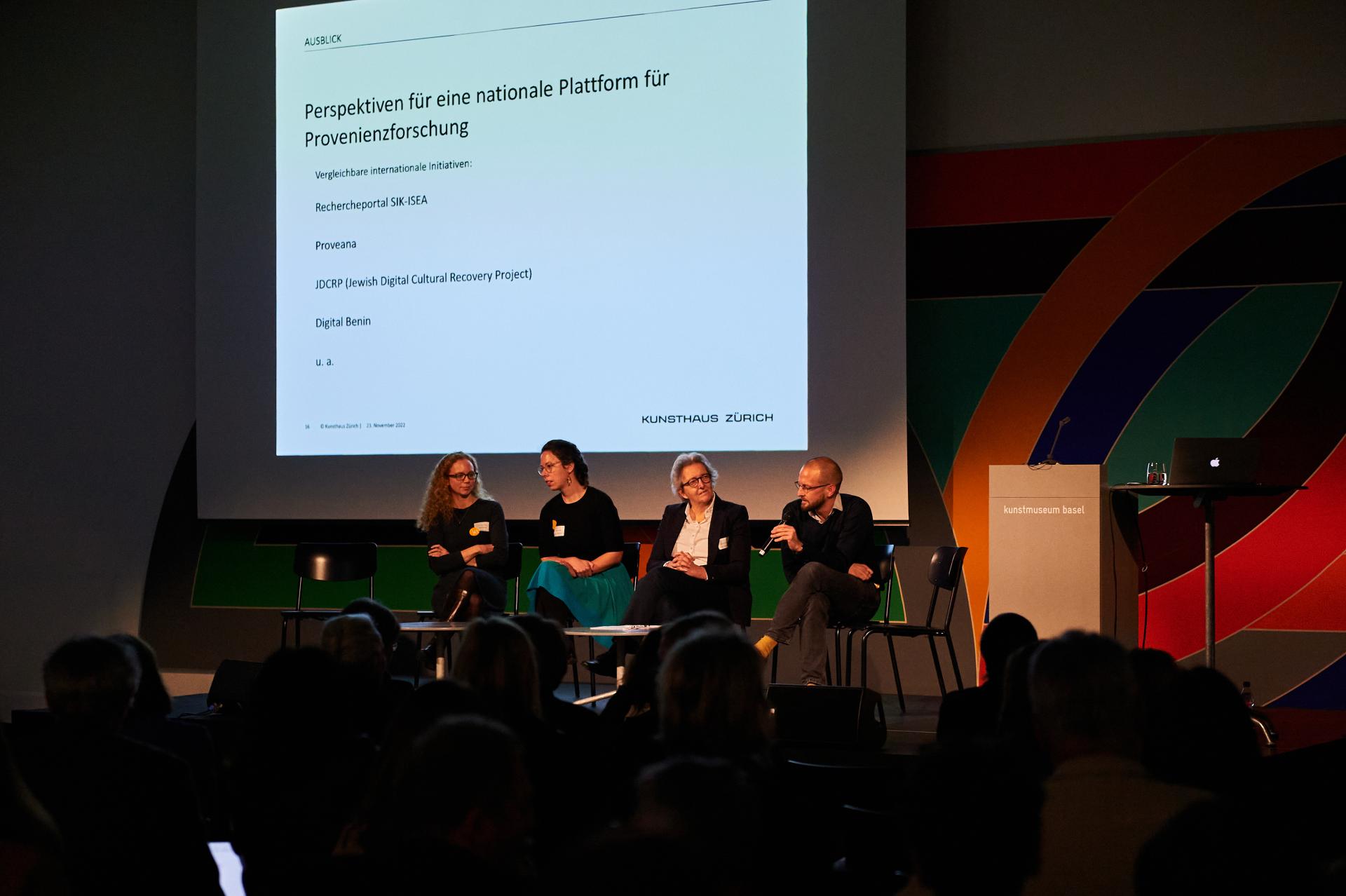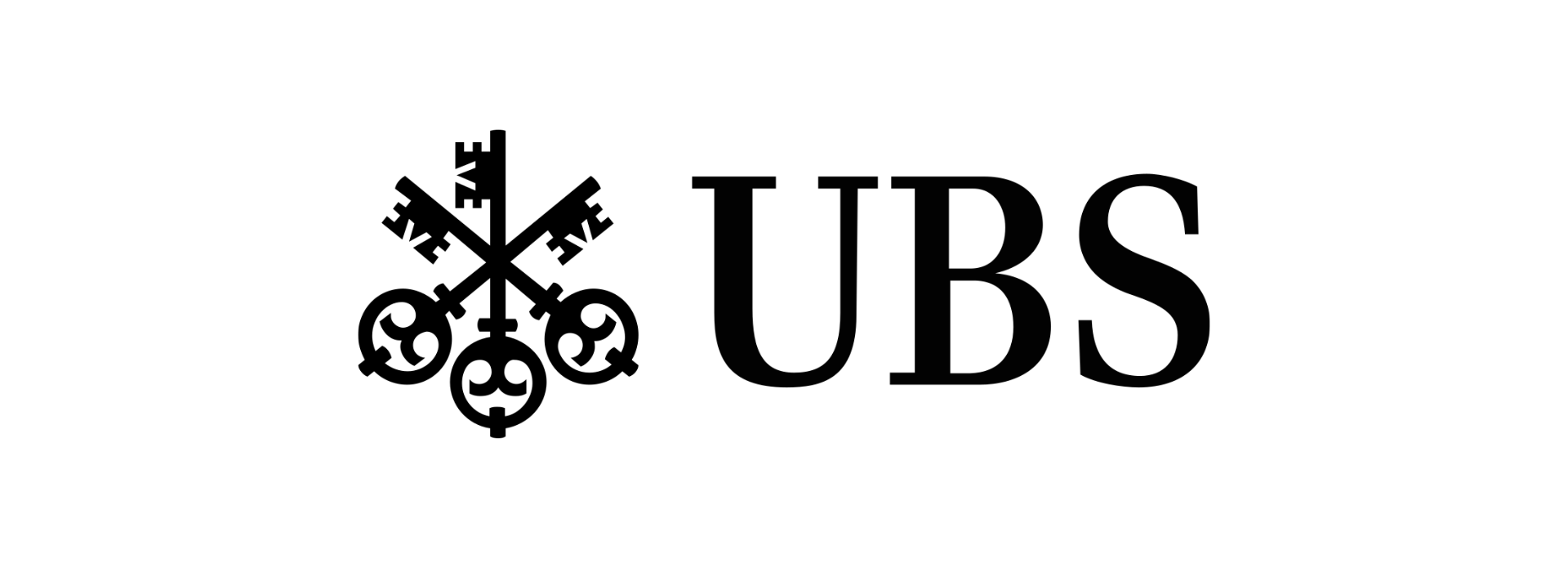Annual Conference of the Working Group Provenance Research e.V.
Focus Switzerland: Exhibitions and Current Issues in Provenance Research
November 23, 2022 at the Kunstmuseum Basel
The Arbeitskreis Provenienzforschung e.V. brings together nearly 450 scholars and experts from Germany, Austria, Switzerland, the Netherlands, the United States, France, Great Britain, Israel, and Italy who are dedicated to researching the provenance of cultural objects at public and private institutions, in the art trade, in the legal system, in academia, or as freelancers. The focus is particularly on property seized as a result of Nazi persecution, but also on cultural property expropriated in the Soviet occupation zone and the GDR or originating from colonial contexts.
The association sees provenance research as an integral part of the fundamental tasks of art museums: collecting, research, preservation and mediation. Against this background, it is an expert and contact partner for all questions concerning provenance research, its documentation and mediation. In order to promote the exchange of ideas among its members, the association meets once a year for a general meeting and supports specialist conferences and workshops. Smaller working groups deal with regional or thematic focal points and develop practical guidelines.
On November 23, 2022, the annual meeting was held at the Kunstmuseum Basel. Organized by the museum's Provenance Research Department in cooperation with the Swiss Provenance Research Working Group (SAP/ASP) and generously supported by the Kunstmuseum Basel, a day-long focus on the Swiss research landscape took place here in the event foyer of Basel's new building. The topics of the lectures ranged from the mediation of the field of work in no less than four current exhibitions on cultural property displacements from colonial and Nazi contexts in Basel, Zurich, and Bern, to new research projects on the Nazi art trade and the so-called "Benin Initiative," to the search for ways to deal with the "flight property" issue and the presentation of relevant sources in national archives. The day was concluded with a panel discussion entitled "Where is Switzerland headed? Commission formation, legal adjustments or other solutions? On dealing with collections and requests for information". Five representatives from the fields of museums, commerce, history, politics, and law talked about what solutions are in store for the country to settle unresolved issues in dealing with Nazi persecution-related property losses and in dealing with illegitimately transferred objects of colonial heritage, and what they would like to see from the perspective of their respective fields from the instrument of their choice. The event was attended by around 270 researchers and interested parties; it was fully booked well in advance.



